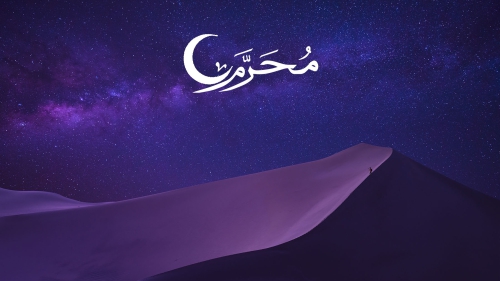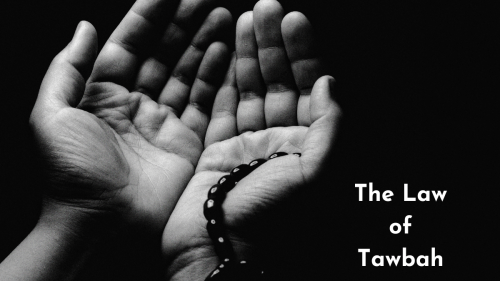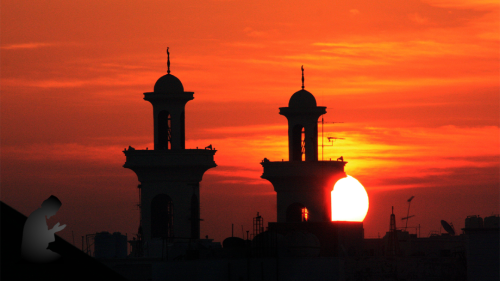New Year and Atonement

New Year marks a whole new beginning. It's always a mystery, we never know what lies ahead but we always hope that it is not disappointing. For some, it will be a year to accomplish the milestones that have been set and worked towards. For some, it will be a new job, new school, new house, new location, or just new goals.
For some, it will be a year that will show improvement in their health or a total recovery. For some, it will be a year to enter marriage and a new life filled with dreams and hopes. For some, it will be a year to lose their loved ones to a better beautiful place, Jannah. For some, it will be a year filled with the joy of a newborn in their family. For some, it will be a year to reconnect and rekindle with families, friends & loved ones. For some, it will be a year to strengthen our relationship with Allah Subhanahu Taala.
Undoubtedly, for each one of us, the New Year will definitely hold God's infinite mercy and blessings Insha'Allah that will overshadow the sufferings and losses that we encounter as part of life. Nothing in this life is coincidental. Every interaction, every incident, every condition, every success, every failure, every loss, and every gain is from God. It has a designated purpose, it's like a piece from a jigsaw puzzle, and every piece connects in the order destined from God to complete the "not so perfect" picture called life.
With our limited wisdom and no knowledge of the "ghaib" (unseen) we should believe that the present situation we find ourselves in is for our best and hence we should be content and thankful by showing our gratitude to God. Indeed, nobody loves us and wants our best more than God!
New Year is a time to look back, reflect, make resolutions to forgive, forget, make amends, give more, love more, hate less, laugh more, and so on and so forth, but above all its another blessing, an opportunity to thank God and ask for His repentance (Tauba) from all major, minor, known and unknown sins that we have committed and will commit.
"At-Tawwaab" (The Acceptor to Repentance), "Al-Ghafur" (The Forgiver), "Al-Ghaffar" ( The Forgiving), "Al-Afuww" ( The Pardoner) are some from the 99 beautiful names (Al-Asma-ul-Husna) and attributes of God. Tauba is an essential principle in Islam. Allah repeatedly gives us chance to come back to Him and to start clean. A beautiful Hadith underlying this principle in Islam:
On the authority of Anas رضي الله عنه who said: I heard the messenger of Allah ﷺ say: Allah the Almighty has said: "O son of Adam, so long as you call upon Me and ask of Me, I shall forgive you for what you have done, and I shall not mind. O son of Adam were your sins to reach the clouds of the sky and were you then to ask forgiveness of Me, I would forgive you. O son of Adam were you to come to Me with sins nearly as great as the earth and were you then to face Me, ascribing no partner to Me, I would bring you forgiveness nearly as great as its."
The above Hadith highlights that every sin if repented with sincerity is forgiven by the most Gracious and most Merciful Lord of all mankind.
To ask God for forgiveness we must first meet and complete the three main prerequisites. These are the "3 R's".
1) Recognize that we have sinned.
2) Regret with a sincere heart and
3) Reject sin. ie discontinue and try to stay away from committing it again.
But sometimes even with the best resolve we tend to repeat our mistakes and sins. We are humans and Allah who is our Creator knows our weaknesses. He is "Oft-forgiving, Oft-Merciful" (Ghaffur ur Rahim) as described in God's own words several times in several contexts in the Glorious Quran. He is the one who forgives the sins of His slaves time and time again.
"And (there are) others who have acknowledged their sins, they have mixed a deed that was righteous with another that was evil. Perhaps God will turn unto them in forgiveness. Surely, God is Oft-Forgiving, Most Merciful". (Quran 9:102)
"Then after that Allah will accept the repentance of whom He wills. And God is Oft-Forgiving, Most Merciful". (Quran 9:27)
"Ask forgiveness for your sin and also for the believing men and women" (Quran 47:19)
"And whoever does evil or wrongs himself but afterward seeks Allah's forgiveness, he will find Allah Oft-Forgiving, Most Merciful." (Quran 4:110)
Repentance is an act of worship done by the prophets, messengers and all pious predecessors.
"I heard God's Apostle saying." By God! I ask for forgiveness from God and turn to Him in repentance more than seventy times a day." (Sahih al-Bukhari Volume 8, Book 75, Number 319)
We believe our beloved Prophet Mohammed ﷺ could never sin. For him to ask repentance more than seventy times a day from God is a lesson for all Muslims to follow suit. He taught us not only to ask God for forgiveness but also exemplified by being the most forgiving person.
Just like the air we breathe in, God's encompassing mercy, blessings, compassion, generosity, protection and forgiveness are descended on us every minute, every second. Shouldn't we all ask Allah for forgiveness and show our obedience before the door of repentance is closed on us?
We end with a Duaa taken from the book called "Prayers for Forgiveness" which is a collection from Hasan-al-Basri:
O God, I seek your forgiveness for every sin that Your pen recorded and Your knowledge encompassed - every mistake that I have committed and that I am to commit until the end of my life. I seek Your forgiveness for all my sins: the first and the last, the intentional and the unintentional, the few and the many, the minor and the major, the subtle and the noticeable, the past and the recent, the secret and the open and public - and all those I am to commit throughout my life.
Aameen, Ya Rabb!
Topics: Atonement, New Year, Tawbah (Repentance) Values: Forgiveness, Mercy
Views: 13877
Related Suggestions
and see how many commandments of Allah have we gone against how many
Sunnah have we left without practicing them in our life? This is for
all of us to ponder and reflect.Therefore it is a reminder for us to
reflect and make taubah and look for a better future by obeying the
Commandments of Allah and follow the Sunnah of our beloved Prophet
Muhammad (S.A.W)We have to have istiqamah until death.That is our
constant message not only on the new year but every time meaning all
the year round practicing Deen as Allah has commanded Waabudu Rabbaka
hatta yatiyakal Yakeen.
Our year began with Muharrum,which we do not celebrate.
We have only two celebrations- THE TWO EIDS.
seekign forgiveness from ALLAH swt, but there is no need of making any reference to the new year. there are no new year resolutions that
has any basis in islam.

















